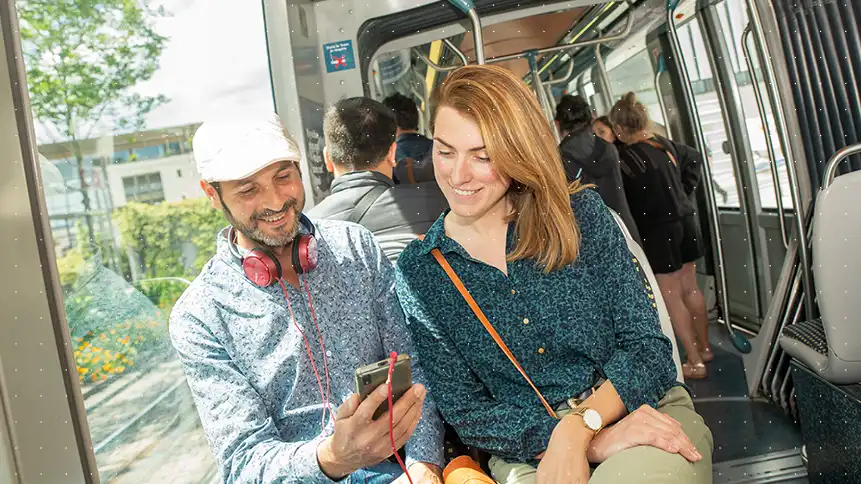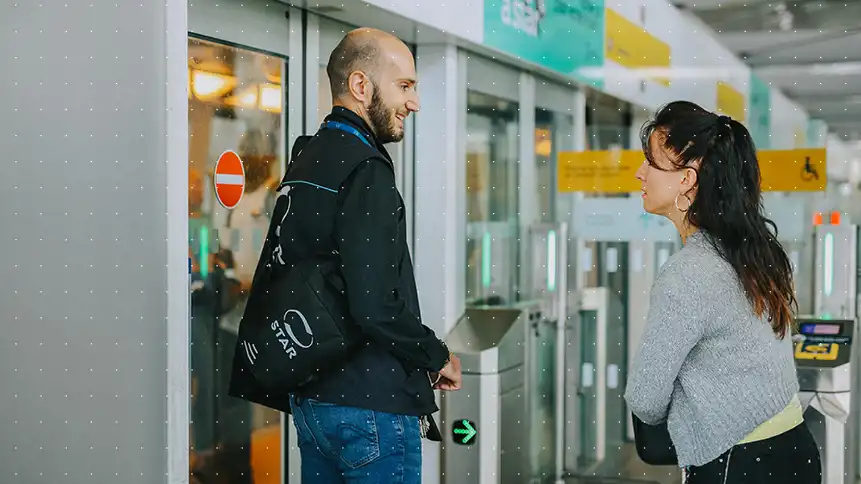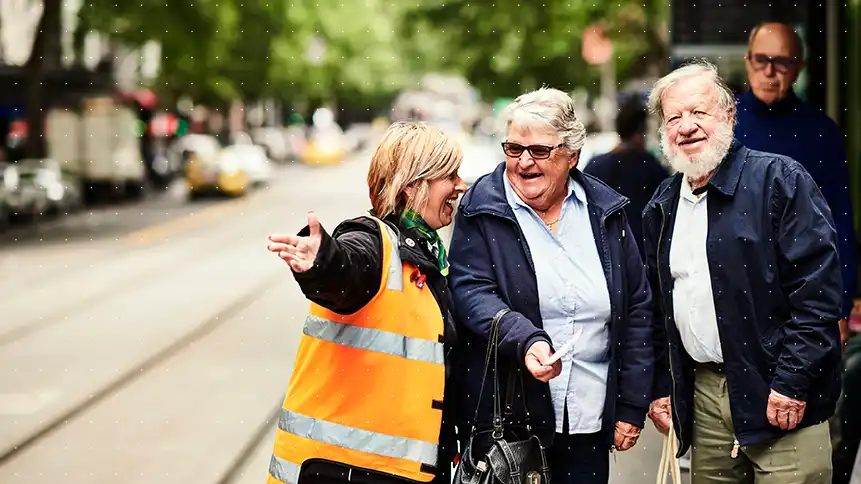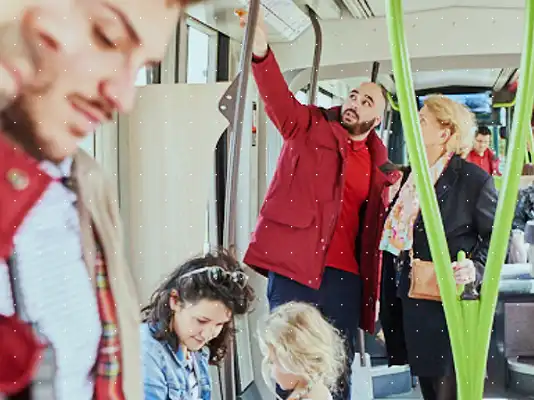Enabling people to get around quickly, easily and reliably. Facilitating access for all to essential services and activities. These are the essential standards to which Keolis holds itself. Every day, the Group strives to offer passengers a pleasant, stress-free and appealing experience. Keolis' strong commitments to its passengers - personalisation, simplicity, flexibility, comfort, safety, respect for the environment and health, inclusiveness, quality of service and customer relations - are fulfilled every day on the ground by dedicated employees who are always attentive to passengers' needs.
Making mobility seamless and individual
As the world leader in shared mobility, Keolis leverages its expertise in transport networks to provide passengers with bespoke travel solutions. From public transport to soft mobility, from carpooling to on-demand transport, the Group deploys multimodality within communities. Through this combination of travel modes, each passenger can travel according to their own wants and needs, in total autonomy and flexibility. Keolis continually innovates to provide a scheduled and regular service range available 7 days a week, and reduce waiting times.
The Group also harnesses data to constantly improve the performance, reliability and comfort of its transport services. GPS data provides information on passenger flows and expectations. The data collected by the sensors on board vehicles can be used to anticipate breakdowns and failures (predictive maintenance). Artificial intelligence is also being tested (in the Netherlands) to anticipate the number of passengers on the network depending on the weather.

Making journeys easier
With the digitalisation of the customer journey and MaaS (Mobility as a Service) applications, all passengers, whatever the mode of transport used, can use their smartphone to plan their journey, check their route and timetable, pay for and validate their tickets, or follow the traffic situation in real time. And because not everyone is at ease with digital technology, advisers are available online and in sales offices to provide information and advice.
Keolis also deploys open payment solutions to enable passengers to buy and validate their tickets directly on board. The Group also makes it easier to get around thanks to clear, well-presented signage. Coloured arrows, 3D maps, mode compasses, vertical and horizontal thermometers, public address announcements, etc. guide passengers around stations, stops and car parks.
Guaranteeing safety on transport
For Keolis, safety on its transport networks is an absolute imperative.
Here, the Group applies its high standards on the ground, with a single objective: zero at-fault accidents. Keolis pursues this ambition through rigorous standards, ongoing employee training, infrastructure performance, incident analysis and passenger awareness-raising.
Keolis also works hard every day to protect its passengers from antisocial behaviour, harassment and acts of delinquency. In particular, the Group is firmly committed to preventing sexual and sexist abuse. Prevention and deterrence are the two pillars of a firm policy, combining mediation, listening and dialogue, and the presence of video surveillance cameras.

Providing mobility to all
Inclusive mobility that is universally accessible, without exception, from the first to the last kilometre, is Keolis' commitment.
The Group takes action every day to make transport networks accessible to all passengers with disabilities - visible, invisible, hidden, temporary or permanent - and with specific needs. Keolis works to facilitate the customer journey from end to end: help in planning the journey, specially adapted passenger information, dedicated information tools (e.g. accessibility guide, companion services, etc.), accessible communication channels, etc. A wide range of accessible mobility solutions are available: bus, tram, metro, train, coach, adapted bicycle, TPRM, etc.
And because inclusive mobility also needs to be conceived at a collective level, Keolis works with public transport authorities to bring communities closer together and reduce the fractures that divide them, in particular through solutions tailored to less densely populated areas (on-demand transport).
Making mobility more environmentally friendly and healthier
As an alternative to the private car, public transport helps to reduce greenhouse gas emissions and air pollution. But Keolis has even greater ambitions, commensurate with the environmental and health challenges.
The Group advises public transport authorities (PTAs) on their energy strategy, helping them to develop increasingly low-carbon and clean mobility solutions.
Keolis supports the use of alternative energies, focusing on hydrogen, LPG, biogas and CNG (compressed natural gas). The Group also encourages the development of shared mobility (carpooling, transport on demand, car sharing) and soft mobility (bikeshares, e-scooters, etc.).

Listening to the voice of the passenger to better meet their needs
To enhance the appeal of public transport, the Group relies on listening and co-construction. Qualitative and quantitative surveys and public debates help gain a deeper understanding of the communities served, anticipate lifestyle changes, understand new mobility requirements, and encourage feedback on passenger expectations and complaints.
Keolis has been drawing on its Keoscopie observatory for fifteen years. A genuine monitoring and foresight tool, Keoscopie pools data from external studies (INSEE, IPSOS, etc.), surveys carried out by Keolis and analysis of ticketing systems and GPS mobile tracks.
Internally, Keolis runs the "Thinking like a passenger" programme. Divided into concrete commitments and constantly enriched with best practices deployed around the world, it gives each subsidiary the means of designing and running transport networks that are suited to the specific characteristics of each community and meet individual needs. One of the results of this approach is the introduction of "exploratory walks". These take the form, for example, of walks with groups of women around a city to identify the places where they might feel unsafe, leading to the implementation of tangible actions to remove this obstacle to mobility. It is also at the heart of the Keolis Signature Service (KSS) programme designed to improve customer relations.
